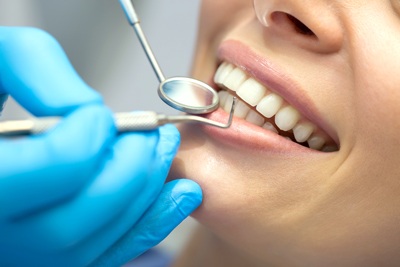"An ounce of prevention is worth a pound of cure."
 Preventive care involves everything you do to take care of your teeth and gums, including your daily oral hygiene, eating healthy and regularly seeing your dentist.
Preventive care involves everything you do to take care of your teeth and gums, including your daily oral hygiene, eating healthy and regularly seeing your dentist.
Regularly brushing and flossing removes plaque, making your teeth look and feel clean. A diet low in sugar is beneficial to your overall health, and is a definitive factor in oral health. It is particularly important for children to get the proper amount of fluoride, either through supplements or manual applications by a dentist. Routine dental exams and cleanings will help you avoid high-cost treatments in the future, including surgery, root canals, extractions and fillings. It is much smarter to prevent problems rather than deal with them in the future.
While there are no clear guidelines for the frequency of dental visits, most agree that you should schedule an appointment at least once every 6 months. Of course, this can vary on an individual basis because of current dental health, dental history and risk factors.
The American Dental Association recommends these steps for good dental health:
- Brush your teeth twice a day with an ADA-accepted fluoride toothpaste.
- Replace your toothbrush every three or four months, or sooner if the bristles are frayed.
- Clean between teeth daily with floss or an inter-dental cleaner.
- Eat a balanced diet, and limit soft drinks and between-meal snacks.
- Visit your dentist regularly for professional cleanings and oral exams.
 Flossing regularly is an integral part of dental health. It breaks up plaque between your teeth and under your gums, which is often missed from simply brushing. Below are some general guidelines:
Flossing regularly is an integral part of dental health. It breaks up plaque between your teeth and under your gums, which is often missed from simply brushing. Below are some general guidelines:
- Use about 18 inches of floss wrapped around your middle finger. Hold the other end with your hand.
- Work the floss between your teeth, moving up and down.
- Make sure you floss the surfaces of both teeth, and floss below the gum line.
- Floss every tooth.
